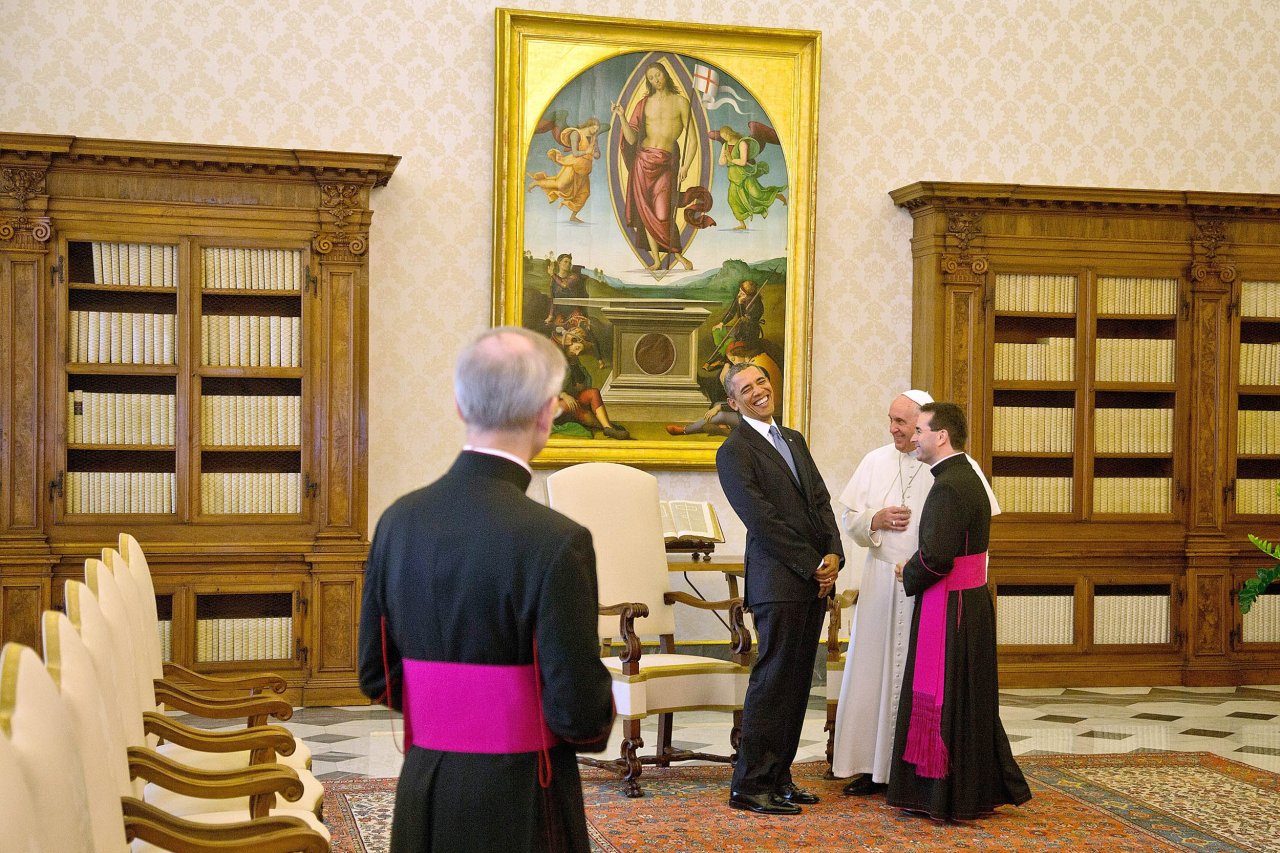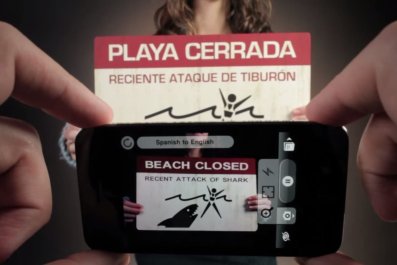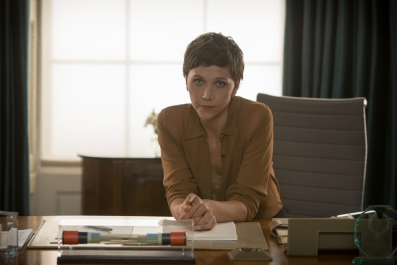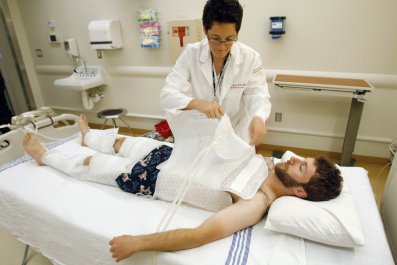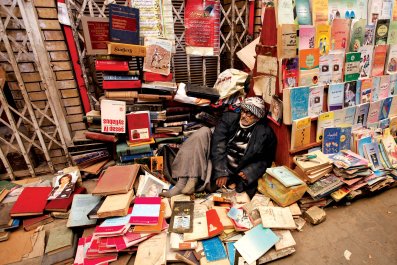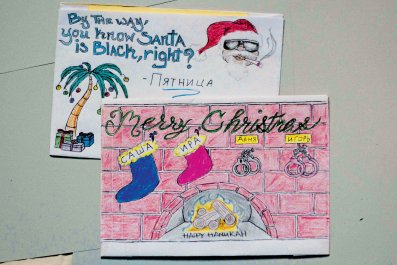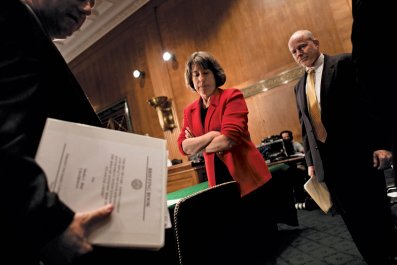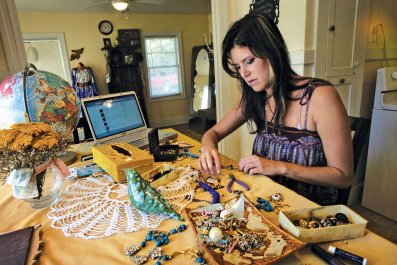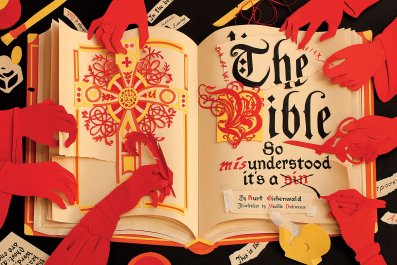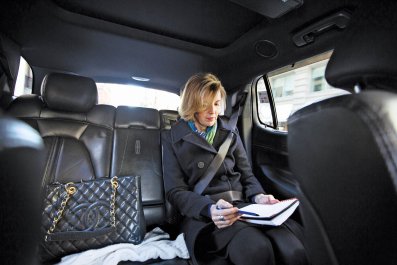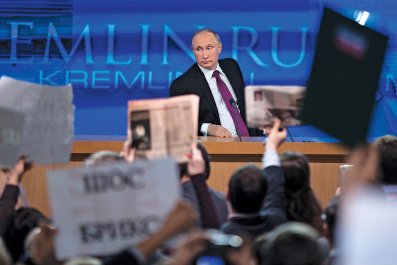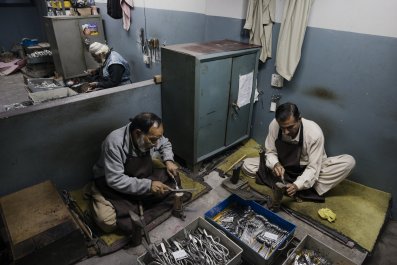Call it a miracle, or simply an exercise in artful negotiation, but in brokering the historic talks between the United States and Cuba that ended a five-decade-long embargo, Pope Francis managed to accomplish something that had long eluded some of the world's finest diplomats: resolving a seemingly intractable stalemate between two bitter Cold War rivals.
Yet the pope's ambassadorial audacity with Washington and Havana is perhaps only the start of a more subtle and assertive diplomacy from the pontiff in Latin America, Asia and perhaps even the Middle East. Indeed, the Cuba negotiations were so successful that one participant, Cardinal Pietro Parolin, the Vatican secretary of state in charge of the Holy See's foreign affairs, called them a "model" for future talks.
"What came together here was the flower of one of the oldest and most refined diplomatic corps in the world, and someone who comes completely from outside of that," said another Vatican official, who, like others at the Holy See, asked for anonymity because he wasn't authorized to speak to the media on this matter. "And they worked brilliantly together."
The agreement didn't come out of nowhere. For all its difficulties with Cuban leader Fidel Castro, the Vatican never broke off diplomatic relations with Havana after the 1959 Communist revolution. In fact, beginning in the mid-1980s, America's two leading Catholic clerics, Cardinal John O'Connor of New York and Cardinal Bernard Law of Boston, began visiting the island and regularly meeting with Castro. The two reported back to Washington and started lobbying the White House to loosen the embargo on trade, travel and finance.
Over the next three decades, with mixed success, other senior Catholic prelates continued pressing for improved relations between the U.S. and Cuba. In 1998, they organized Pope John Paul II's visit to Havana, the first ever by a reigning pontiff. They hoped it would create the conditions for a major thaw. Unfortunately, not long after the pontiff touched down in Cuba, the Monica Lewinsky sex scandal erupted, overshadowing that historic meeting between the two leaders. Today, the Vatican plays down what some have called its grand ambitions for that meeting.
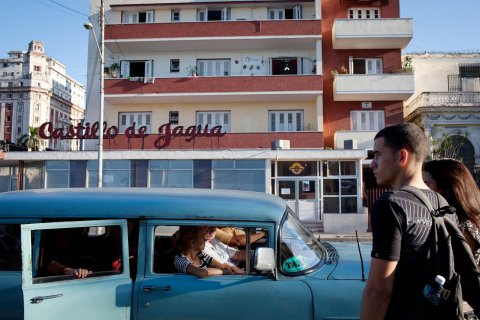
"Yes, the Lewinsky affair blew the whole strategy off the map," says a Vatican insider. "But I don't things think things were near a point of fruition then. The idea that it could all have been sorted with Pope John Paul's visit is an exaggeration."
The visit proved to be part of the Vatican's long game and helped pave the way for the recent diplomatic breakthrough. Though previous attempts by Barack Obama at a détente with Cuba broke down during his first term, after his reelection in 2012 the president said he wanted better relations with Havana to be part of his legacy. When the Vatican got wind of Obama's intentions, the Church's diplomatic emissaries began working behind the scenes. By the time Obama shook hands with Cuban leader Raúl Castro at the memorial for Nelson Mandela in front of a jubilant crowd in Johannesburg in 2013, the pontiff and his team were already hard at work, looking for ways to nurture a deal.
Months later, in March, Obama visited the Vatican, and the pope made his move. The two spent much of their time together talking about U.S.-Cuban relations and Alan Gross, an ailing American aid worker imprisoned on the island. "Gross had been on our map for a really long time," a Vatican official said. "Pope Benedict had made an appeal to Castro in Cuba [in 2012] to release him." Encouraged by their conversation, the pope later summoned Cardinal Jaime Ortega, the senior Catholic in Havana, to Rome to start brokering negotiations with the Communist state.
The talks went well, as diplomats from both sides shuttled back and forth to Canada, where most of the secret meetings took place. But they hit a snag earlier this year over a proposal to trade three Cuban spies jailed in the U.S. for an operative imprisoned in Cuba, along with the humanitarian release of Gross. Francis urged Obama and Castro to strike a deal. Gross had become increasingly ill behind bars, and U.S. Secretary of State John Kerry privately warned the Cubans that if he died, so too would the negotiations. The plan worked, and the two sides came together. "The stars were all aligned," a Vatican insider said. "Obama was not having to run for president again. Alan Gross was very ill. Then you had the incredible moral authority of the pope."
The historic agreement may help ease the testy relationship between the U.S. and Venezuela or even help the Colombian government make strides toward peace with the FARC rebels in Colombia. But Pope Francis's moral authority won't produce miracles, Vatican diplomats say. Some observers have hoped the pope could intervene with the Taliban in Afghanistan or with ISIS in Syria and Iraq, but that's unlikely. "Pope Francis is ready to put his prestige on the line with anybody where he thinks he has a realistic prospect of success," one ambassador to the Holy See said. "He has told papal diplomats to take risks. Don't underestimate him. But let's not be naive. He also understands the limitations of political power."
This pragmatism is what will drive the Holy See's future ambassadorial efforts. Diplomacy may need grand gestures, but as Francis said after helping to broker the Cuba agreement, it also needs piccoli passi—baby steps. Inching the needle forward is what the pope was doing earlier this year when he invited the Israeli and Palestinian presidents to a prayer summit at the Vatican after his visit to the Holy Land.
Today, the pope and Cardinal Parolin are using a similar strategy in China. The country's 12 million Catholics are divided between underground churches loyal to Rome and a government-sponsored church with bishops appointed by the Chinese Communist Party. The two sides are making progress, which is why the pope recently declined to meet with the Dalai Lama, whom Beijing sees as a Tibetan separatist enemy. "The pope will not take risks where there are no fruits," one Vatican official said. "He needs to see a possible payoff. He knows the realpolitik."
Despite his reputation for being a maverick, the pope also knows he has to listen to advice. Last year he was ready to go to Iraqi Kurdistan to support Christians being persecuted by Islamist extremists. He was hoping that his visit could help stop the violence, but when his security officials said it was too dangerous, he demurred. As the Cuba deal demonstrated, we should expect the unexpected from Pope Francis, but perhaps not the impossible.
Paul Vallely is the author of Pope Francis: Untying the Knots, published by Bloomsbury.



